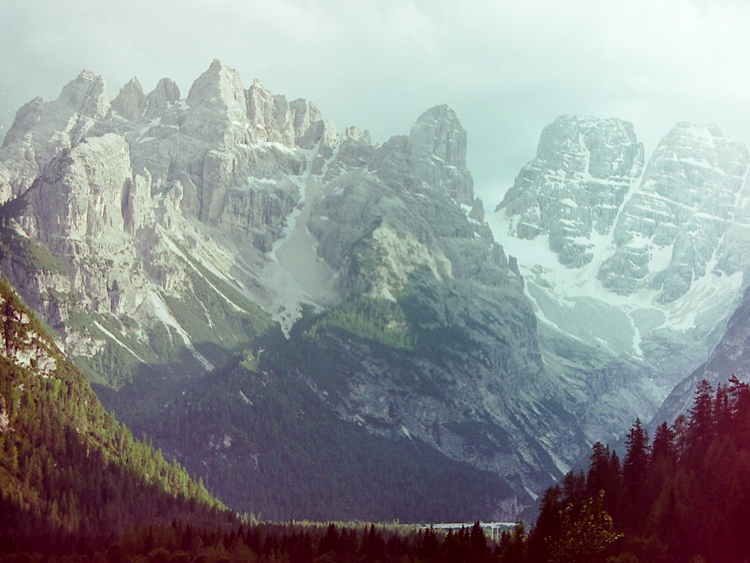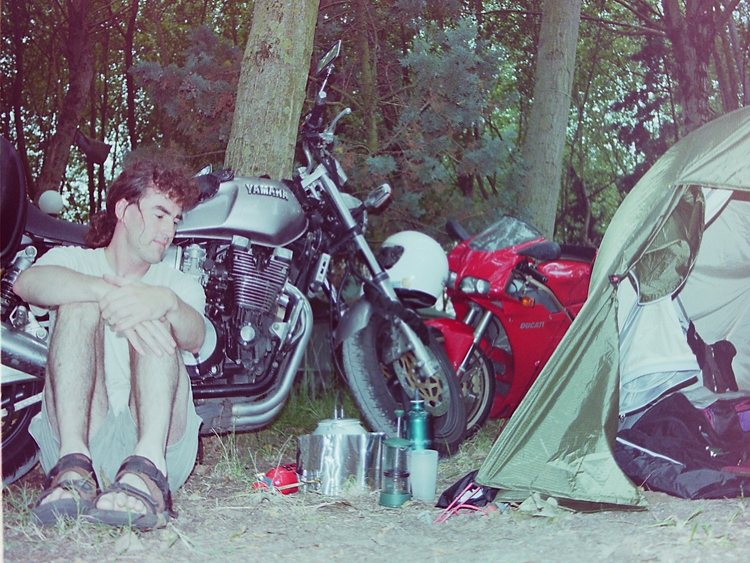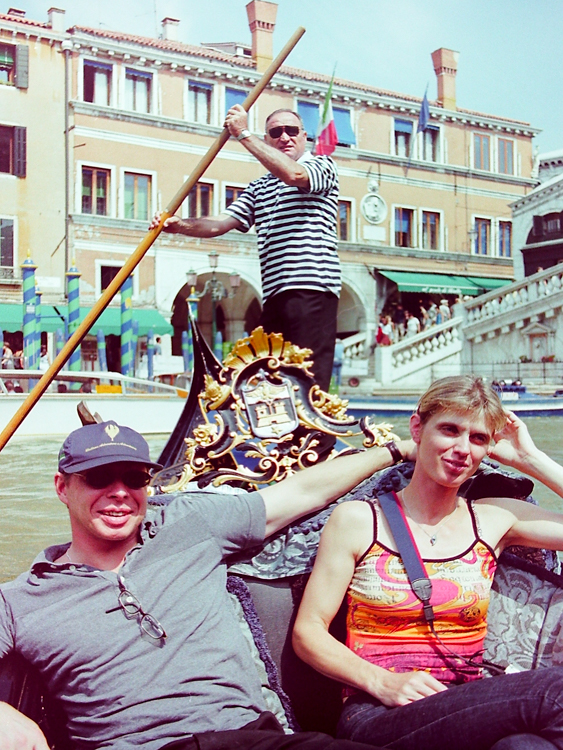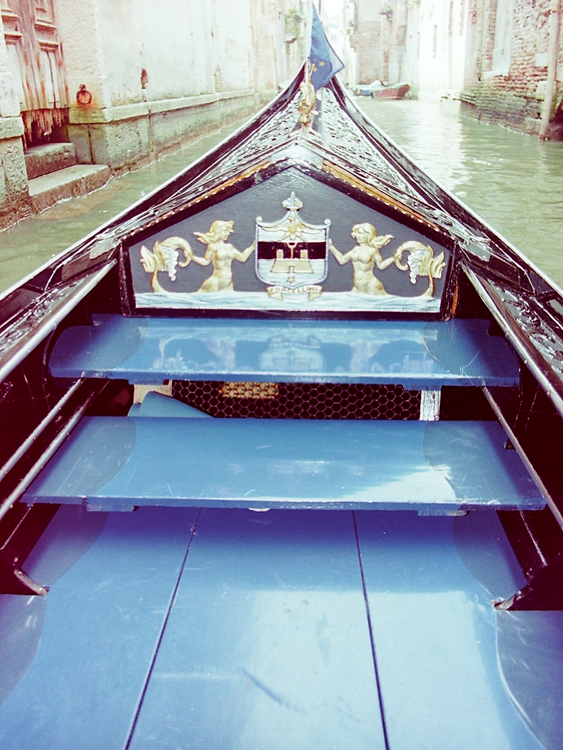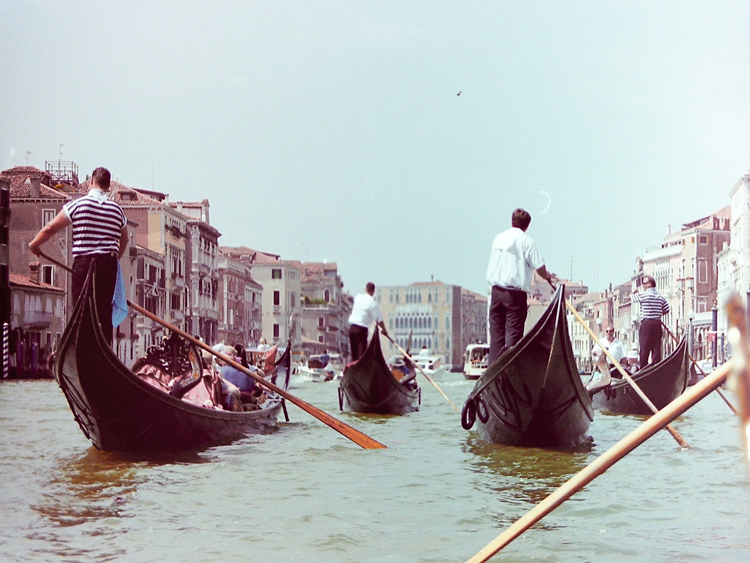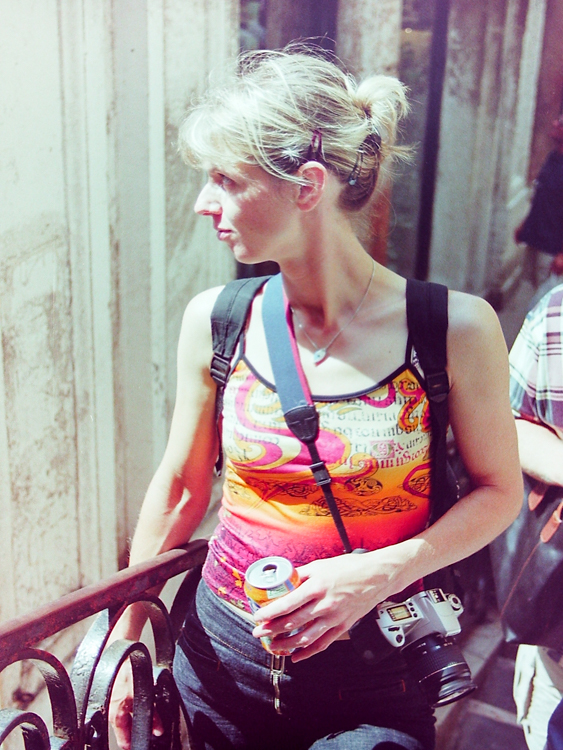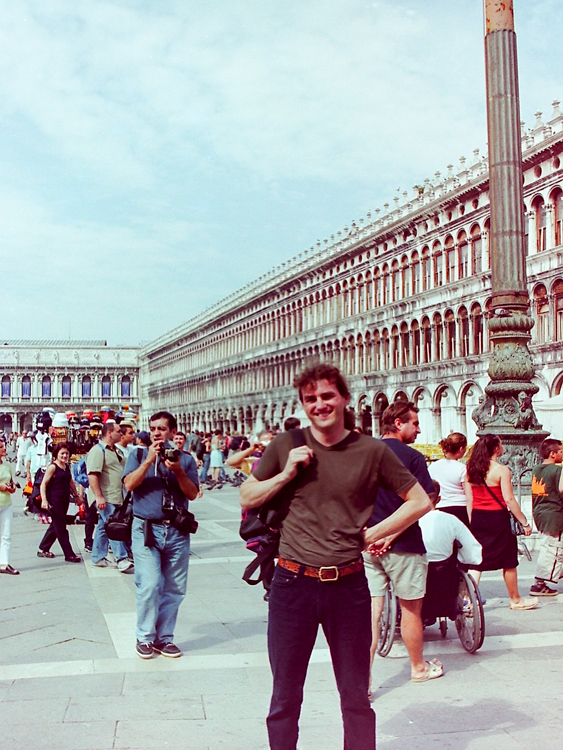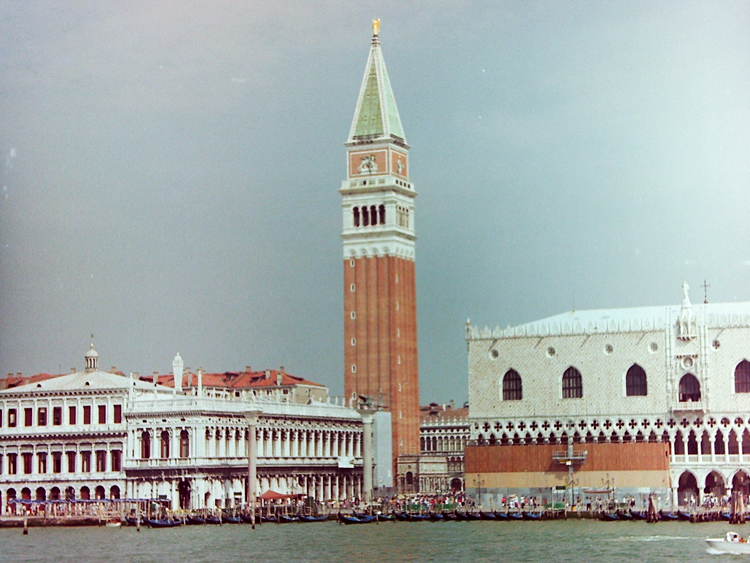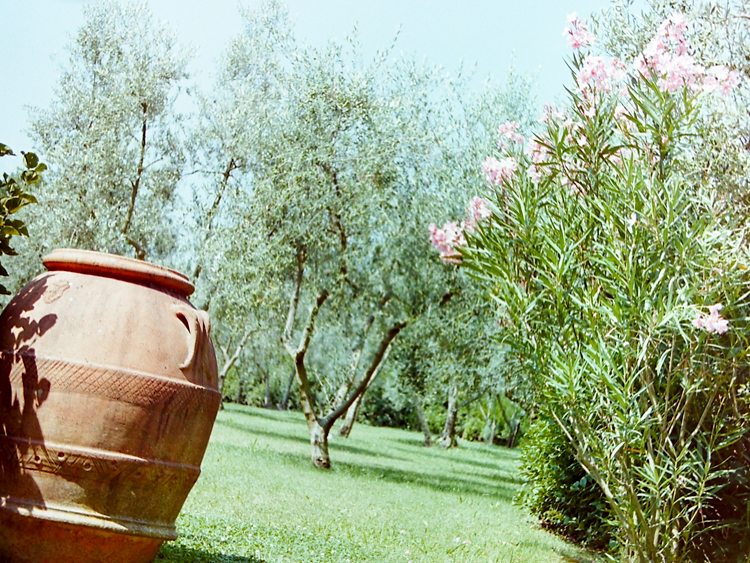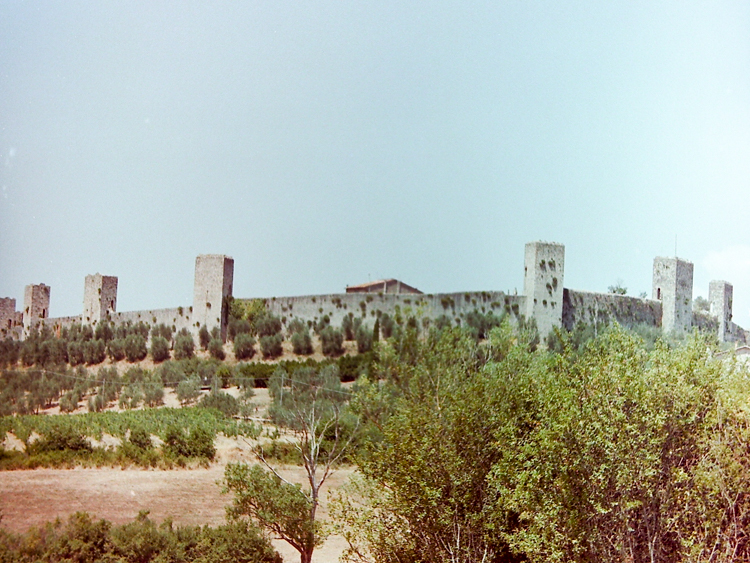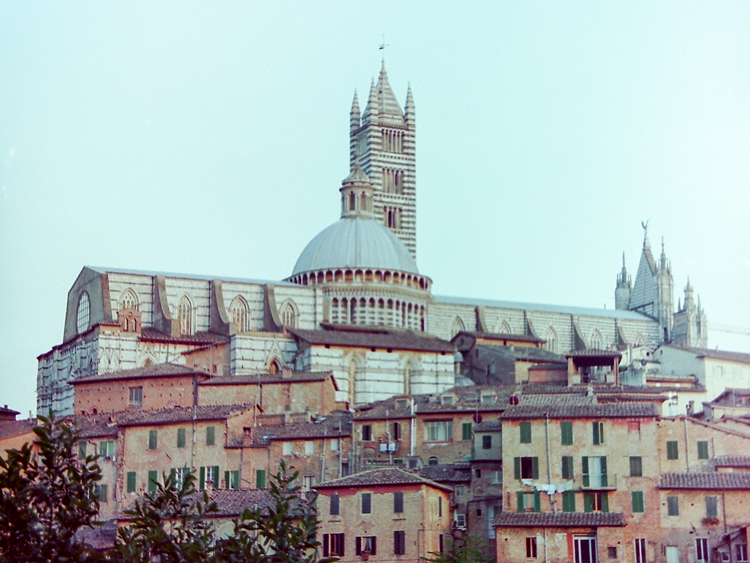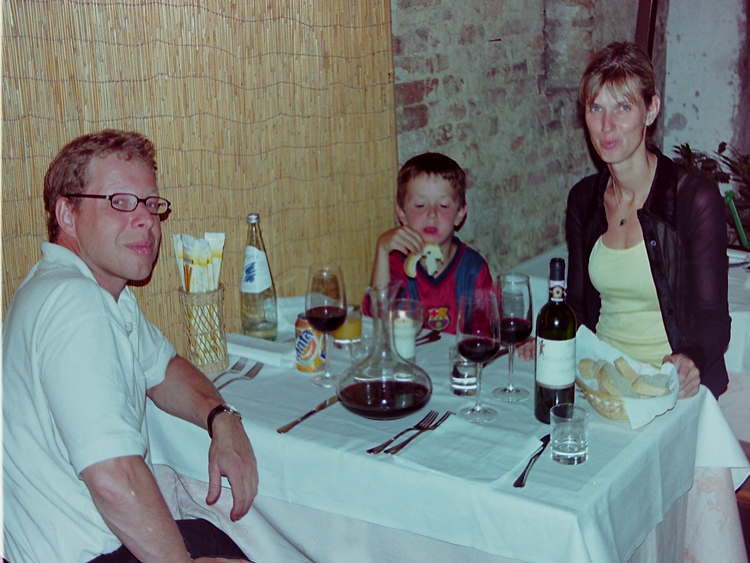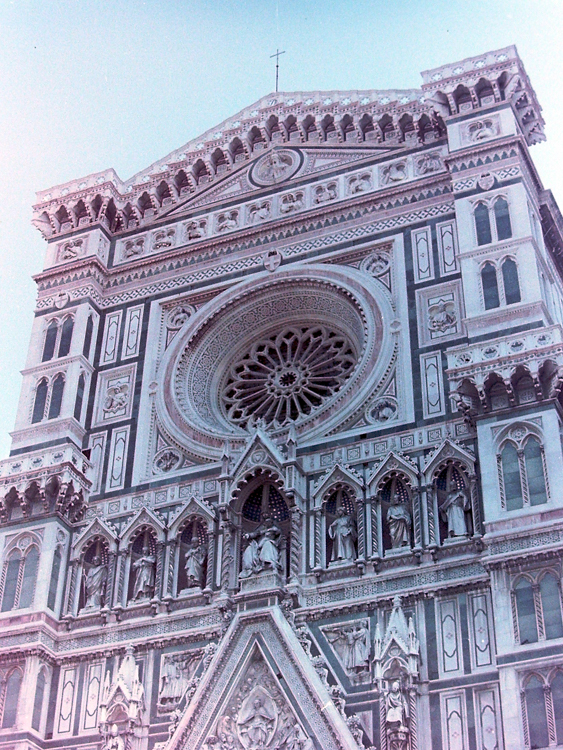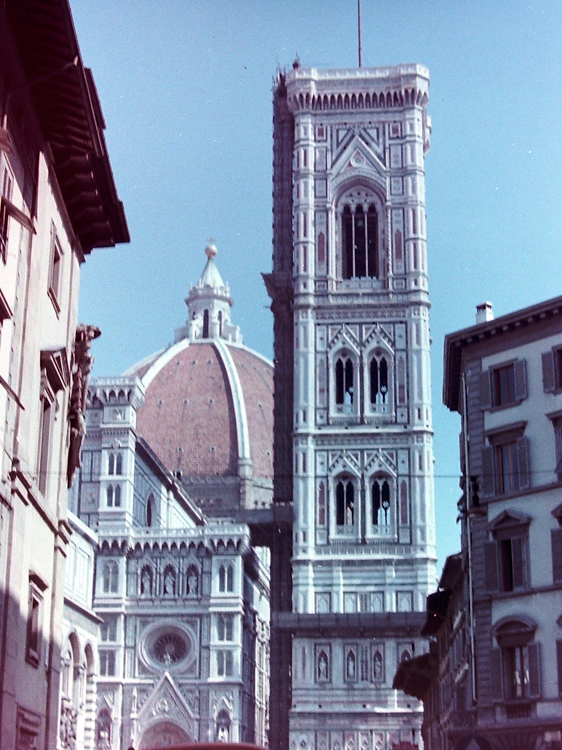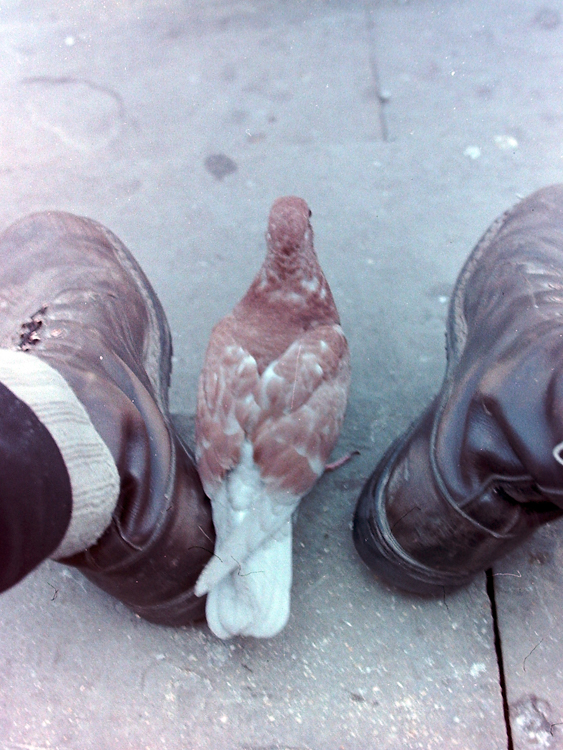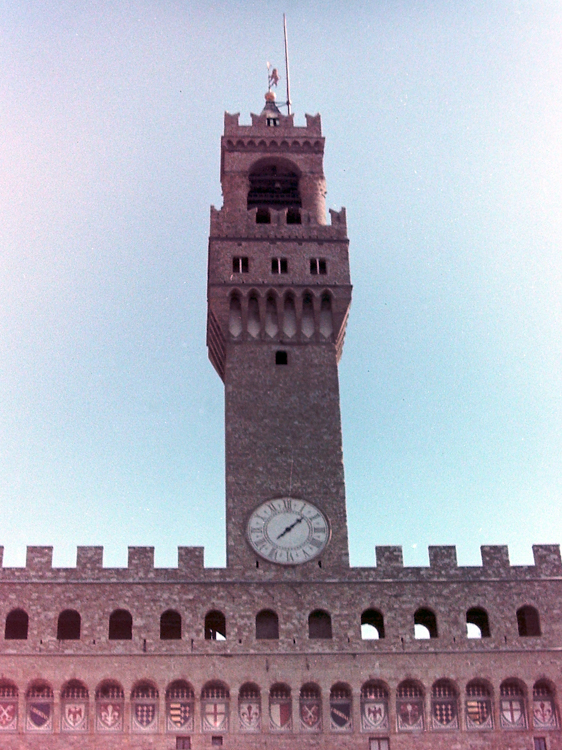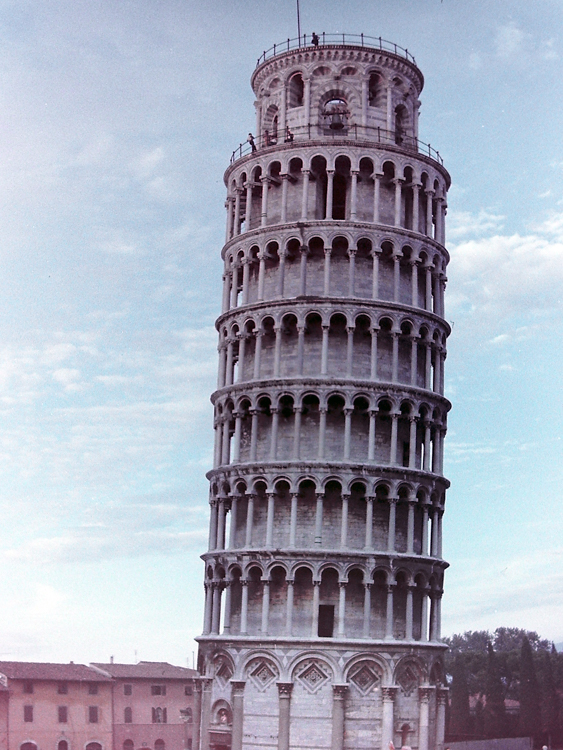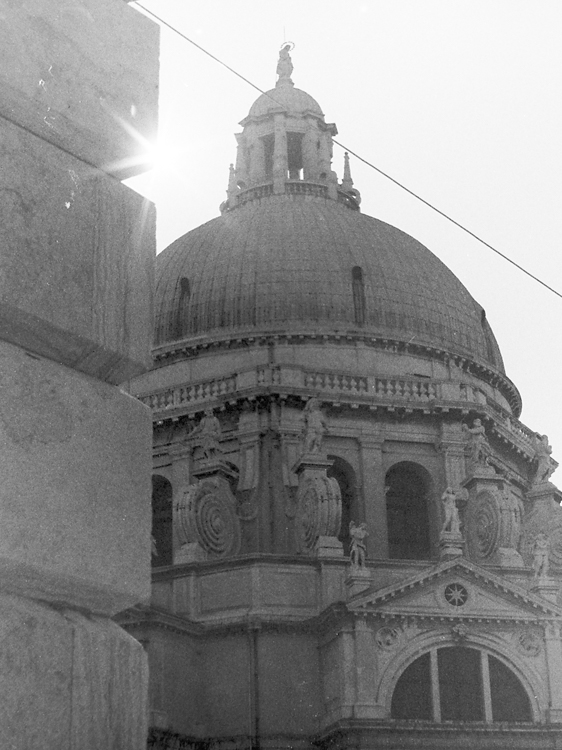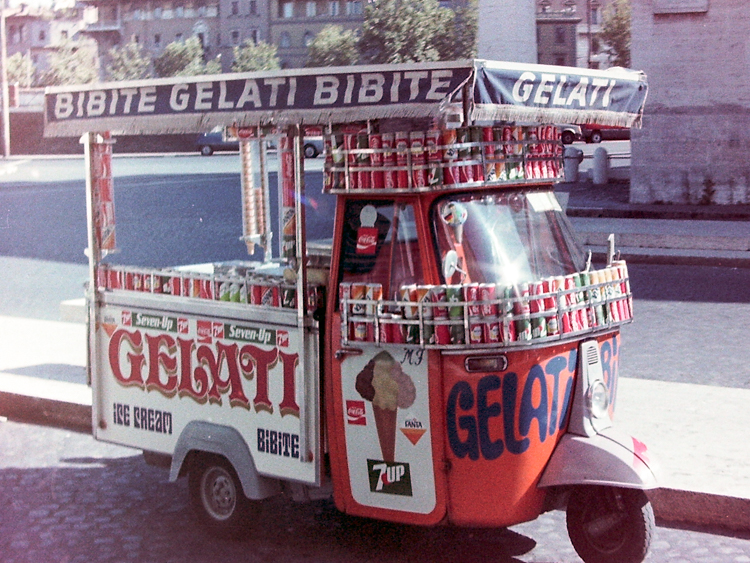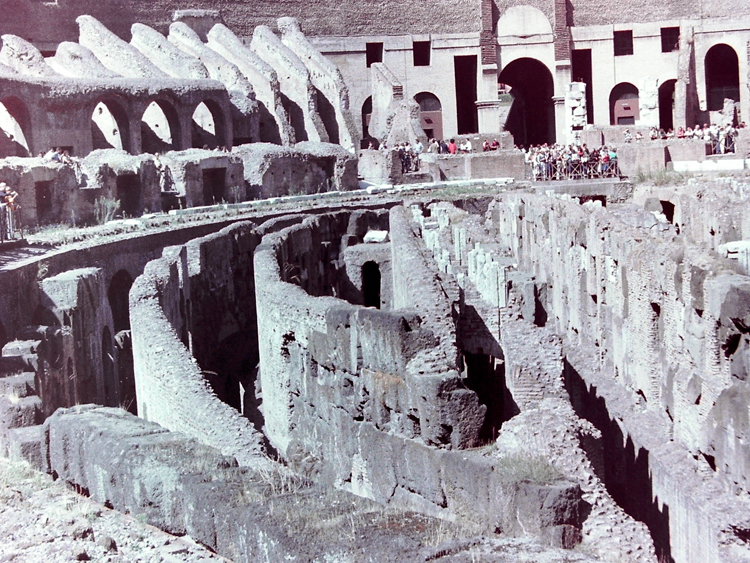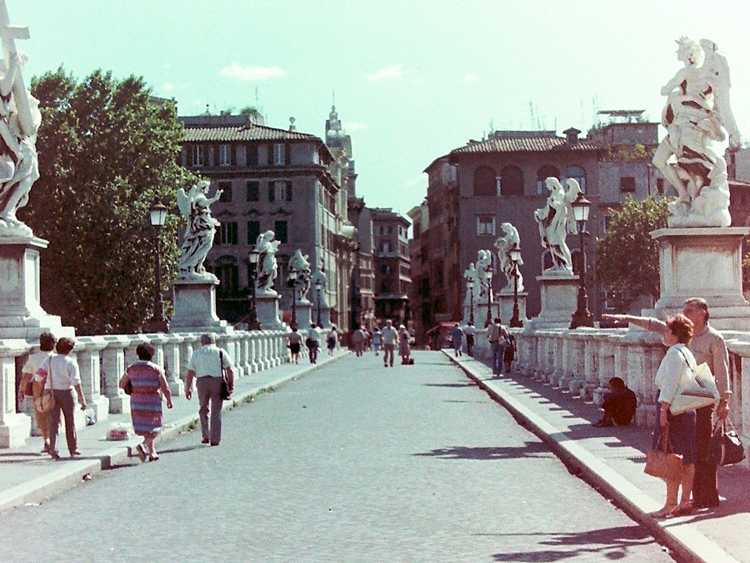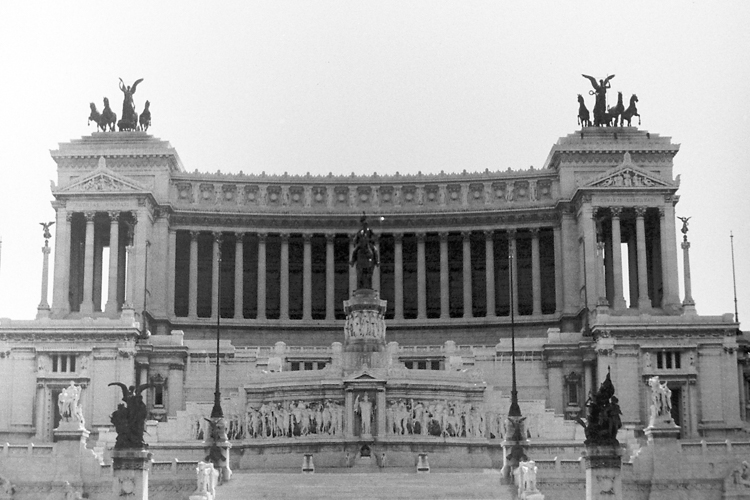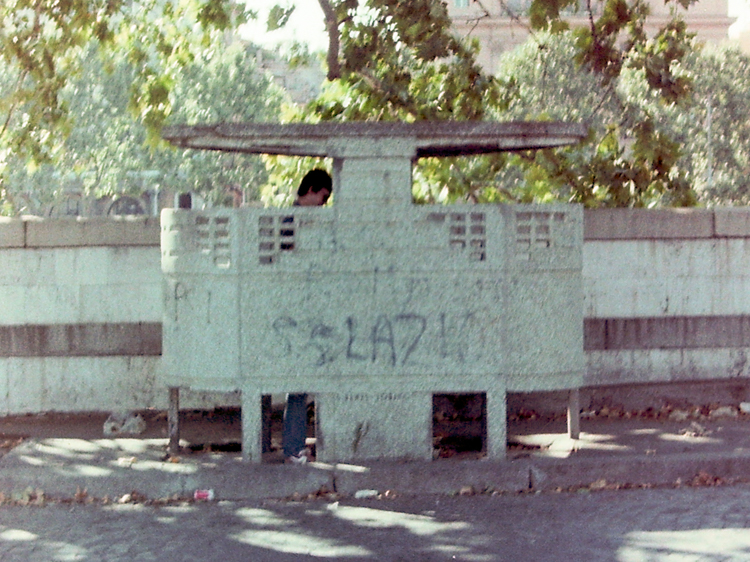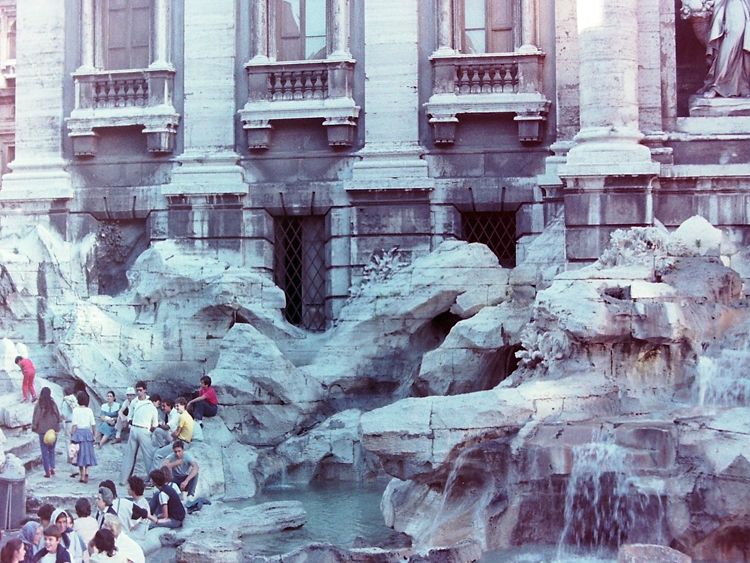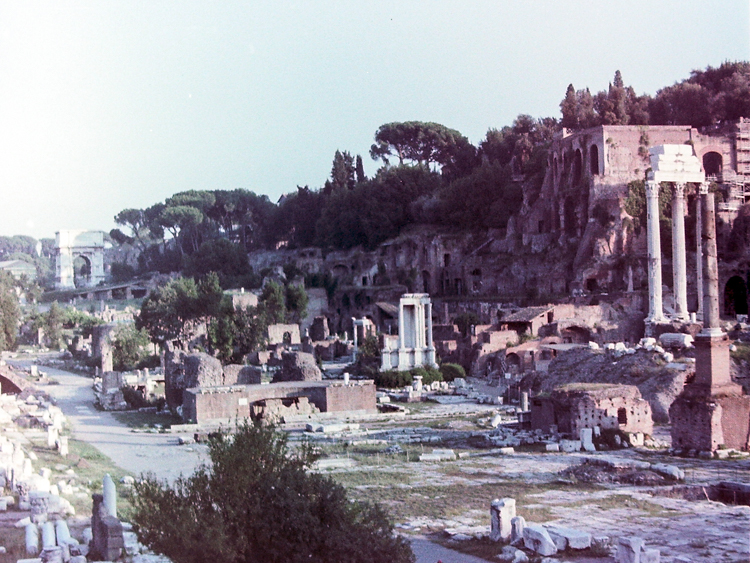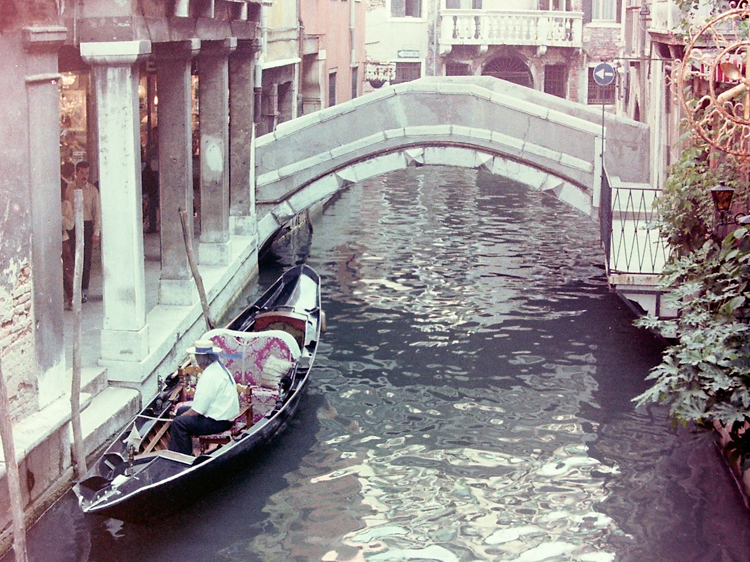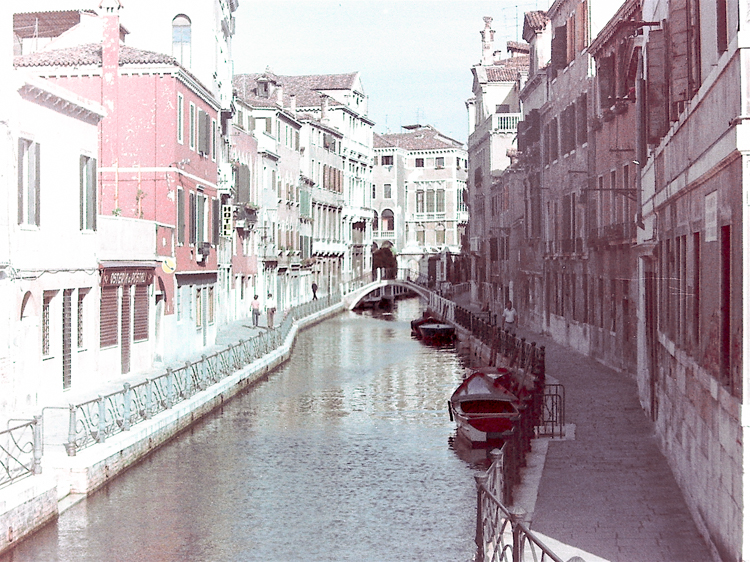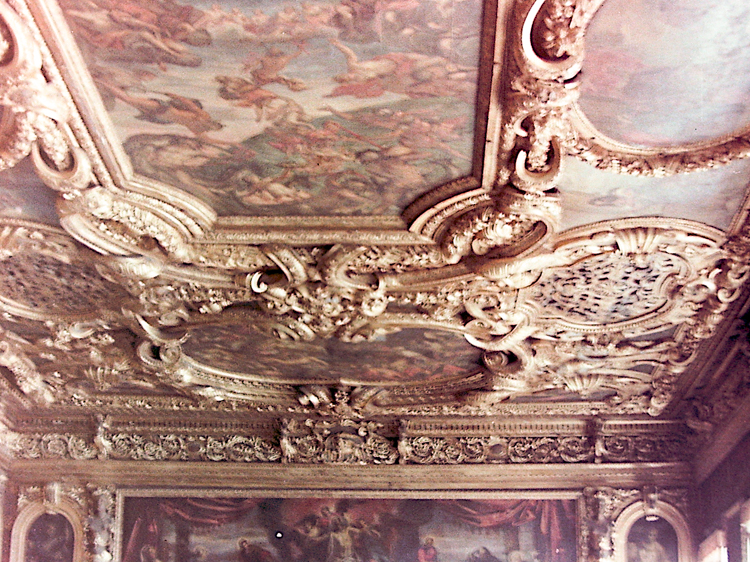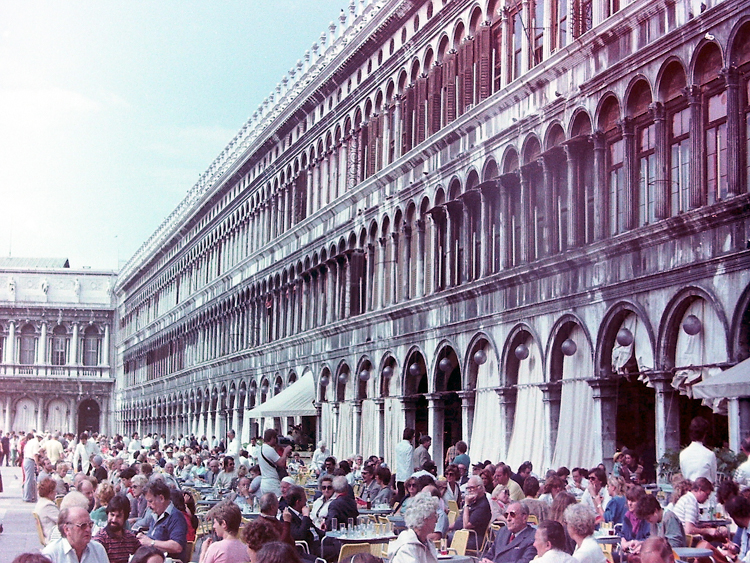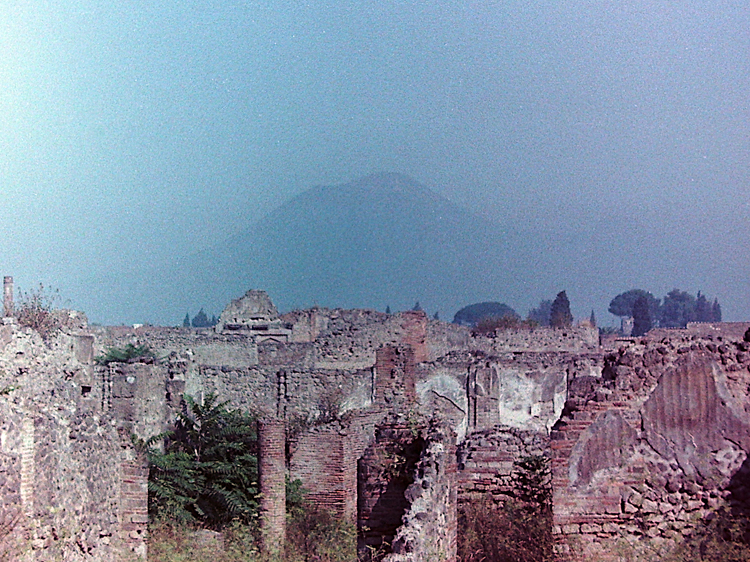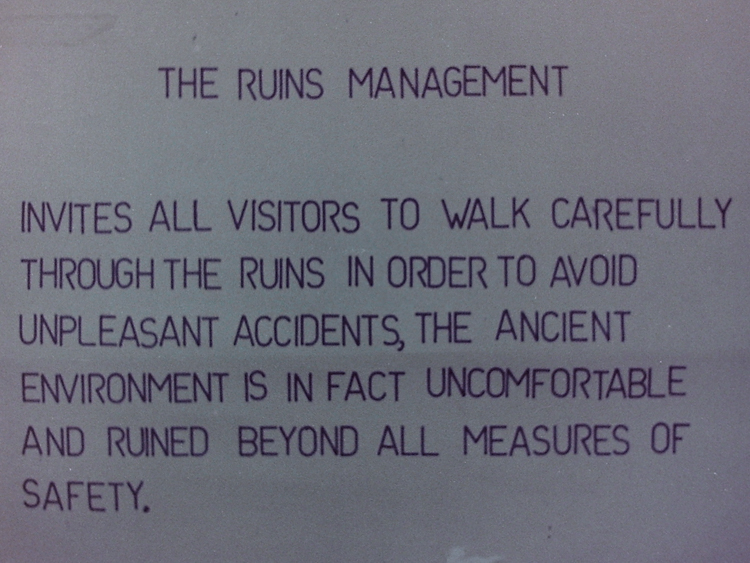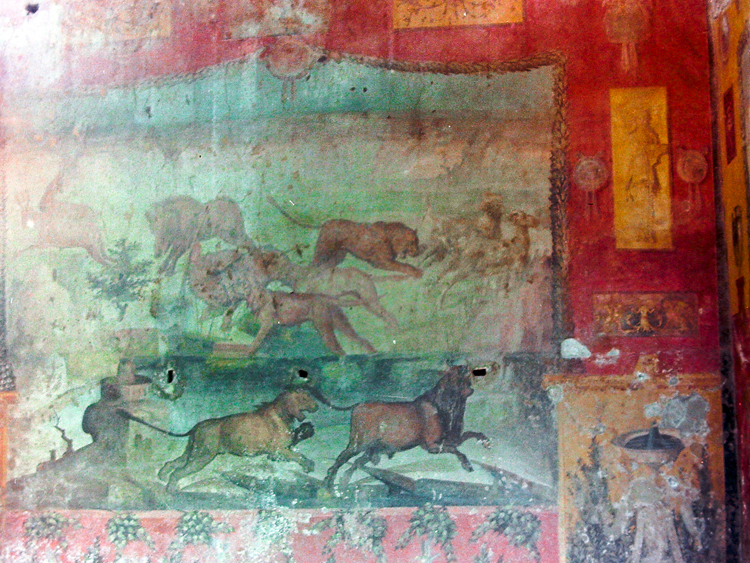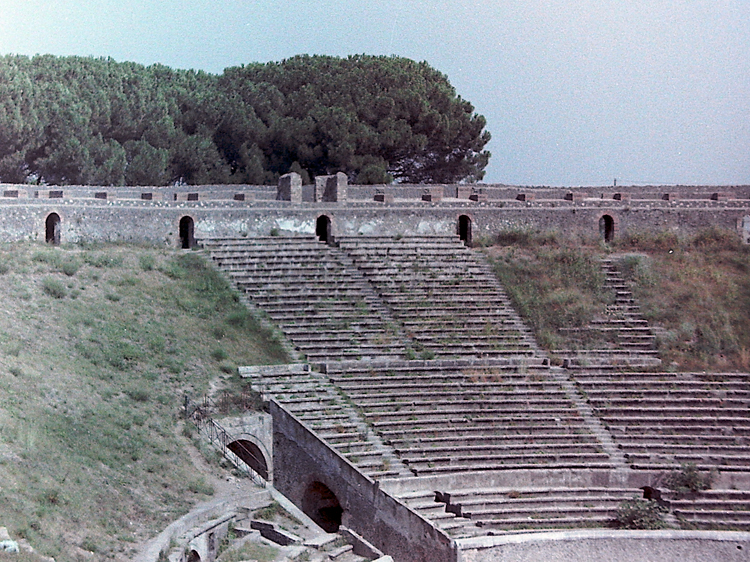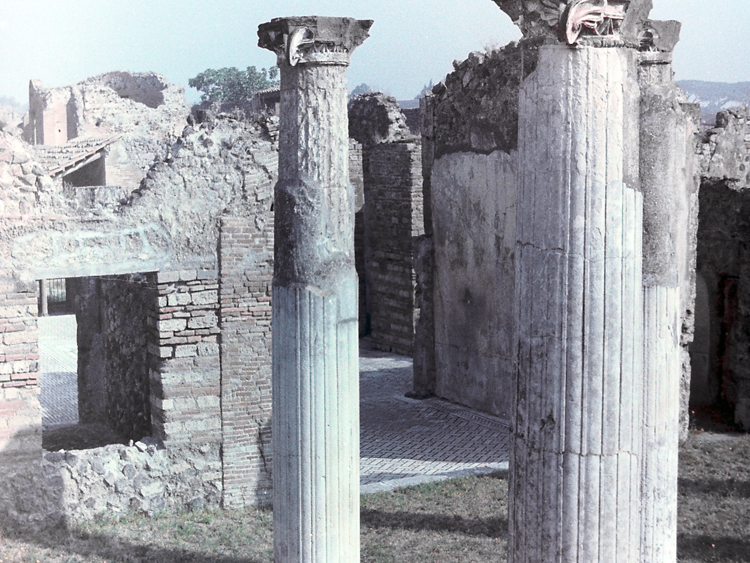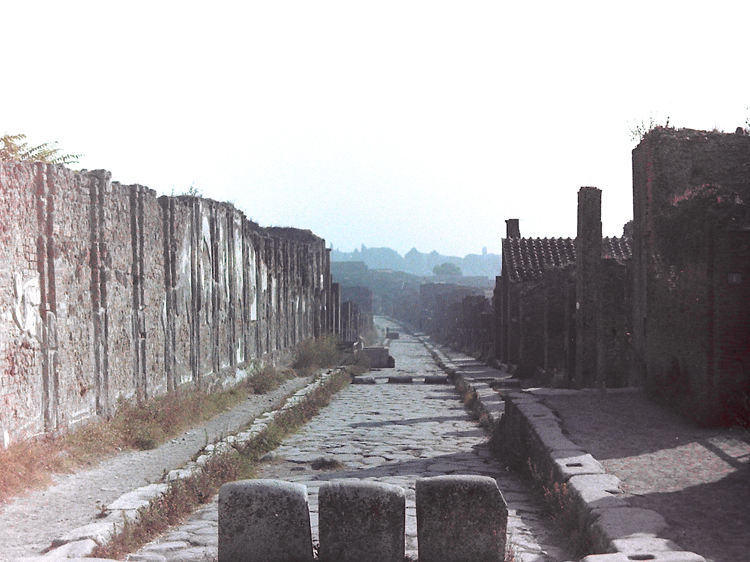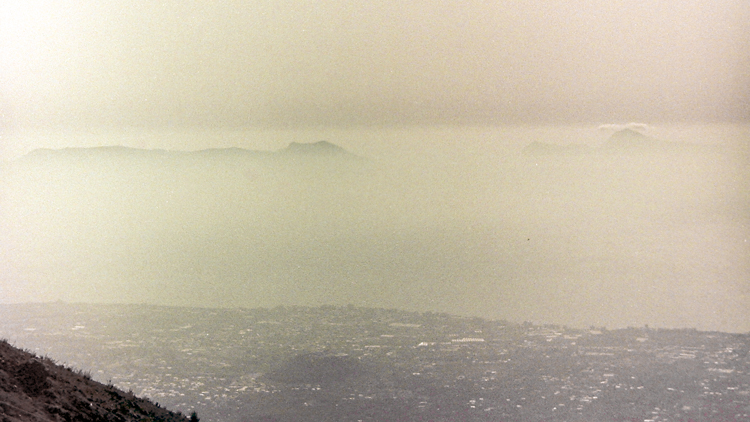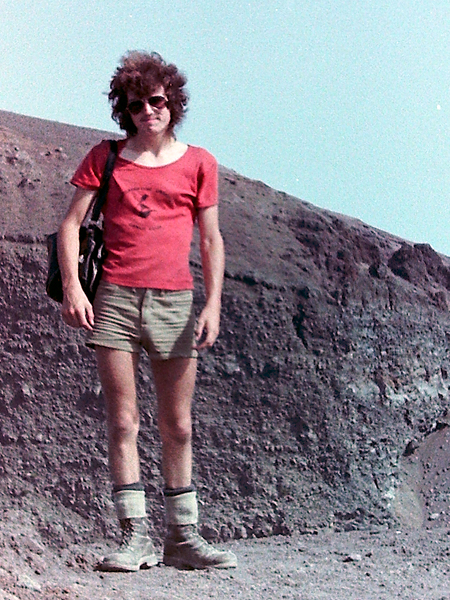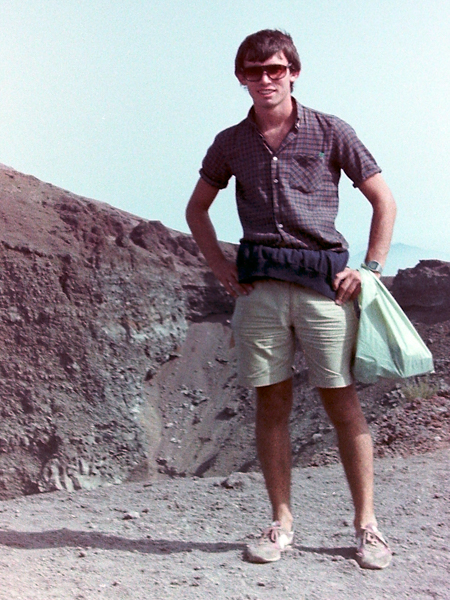We’d been having a lot of fun in Tuscany, but it was time for Patrick and Helga to return to work. I was resting between contracts and fancy-free, and had intended to carry on to the south of Italy. However, the weather was getting uncomfortably hot and I was hankering for some cool mountain breezes, so we formed the familiar delta formation and headed northward together.
In Modena, the others peeled off for Switzerland, and I headed in the direction of the Brenner Pass and Austria. The day continued hot hot hot, so I just hung in there at a steady 160 kph and waited for some altitude. It certainly got higher, the temperature dropped barely at all.
It was a Sunday, and the only way that I could get fuel was to feed my few remaining 10,000 lire notes into automated petrol pumps, so by the time I reached Varna I was not only low on fuel but hungry and broke as well. I pulled into a hotel/campsite/restaurant where a nice young girl took half my remaining cash in exchange for a place to pitch my tent, and told me that there was a bank machine just up the road. She was right, but it was broken.
Still, I had enough cash for a few beers, so after pitching my tent I wandered over to the bar, where a rather lovely Goth girl not only served me a well-deserved Weissbier, but also told me that if I hung around for another hour then the kitchen would open, and – joy of joys! – after that I could put my entire bill onto Visa. Several hours, a number of beers and a splendid meal later, I was joined by a German couple, and we laughed and told stories until it was time to stumble to bed.
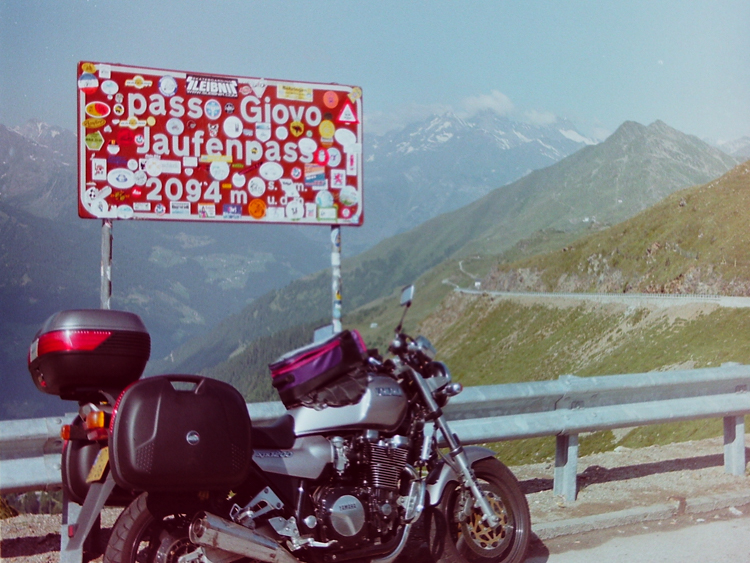
Poised for the run down to the Austrian border
In the morning, my new friends stopped by my tent on their 600 trailie and mentioned that instead of taking the Brenner Pass, they’d found a guide book that recommended the smaller and little-known Jaufenpass towards Otzal. Somewhat later, after leisurely breakfast, I followed, and soon found myself tearing around a tiny, crumbling and deserted switchback road, heart swelling with that sheer unadulterated joy that only comes from riding a bike fast in the mountains. As awe-inspiring view replaced stunning vista, I was both figuratively and literally on top of the world.
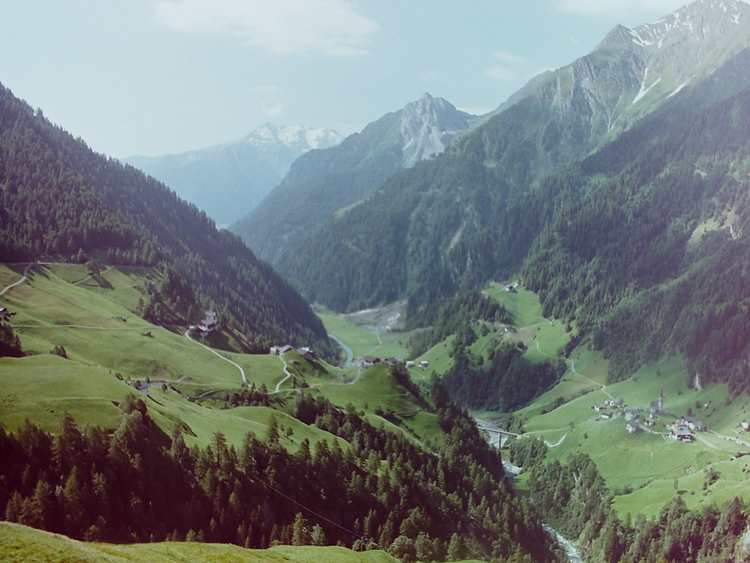
Through the Jaufenpass
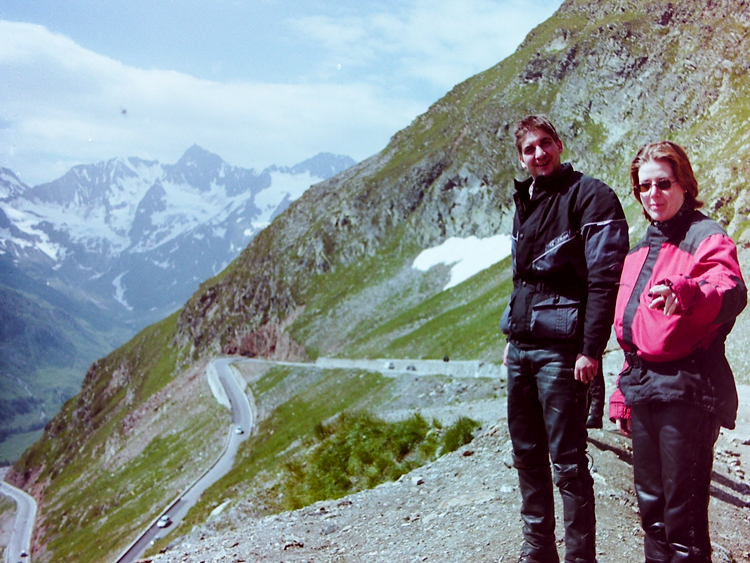
Hey look, a crazy Englishman with a camera
The pass dropped into a deep bowl, containing the attractive little town of St Leonhard, awash now with the lunchtime thunder of motorcycle exhausts. I considered staying to look around, but I was hungry for more and was soon climbing up some crazy mule-track of a road, emerging on a high ridge looking out onto a wall of alps stretching from side to side across the world. Here I caught up with the Germans again, who were having a great time, but who had blown a
headlamp bulb and were thus having some nervous moments in the tunnels. I rode point for them down to the Austrian border, and then at the toll booth found that once again I didn’t have enough cash for the crossing. Luckily, however, I found a forgotten envelope of German Marks deep in my luggage, so they let me through.
We continued in tandem down the other side until we got caught up in a snarl of bikes doing no more than 80 kph on beautiful winding roads. Not only was it a crying shame, but the sun was beating down on my leathers and I was getting uncomfortably hot, so I waved goodbye to my friends and got the hell out of there. Once up to cruising speed, I thought that I may as well stay there – and in any case the toll booth had stripped me of all my remaining cash – so I settled in until I dropped out of the mountains and onto the autobahn.
Munich (Germany)
I was going to meet up with Moz in Munich, but he was still at work when I arrived, so I scouted the local bars and settled, as usual, for the one with the most attractive barmaids. When Moz finally turned up, the shift changed, and we began to be served by Carole, who seemed to run the place. She turned out to be such fun and we had such a good time that we simply stayed there for the rest of the evening.

Carole, our new favourite barmaid 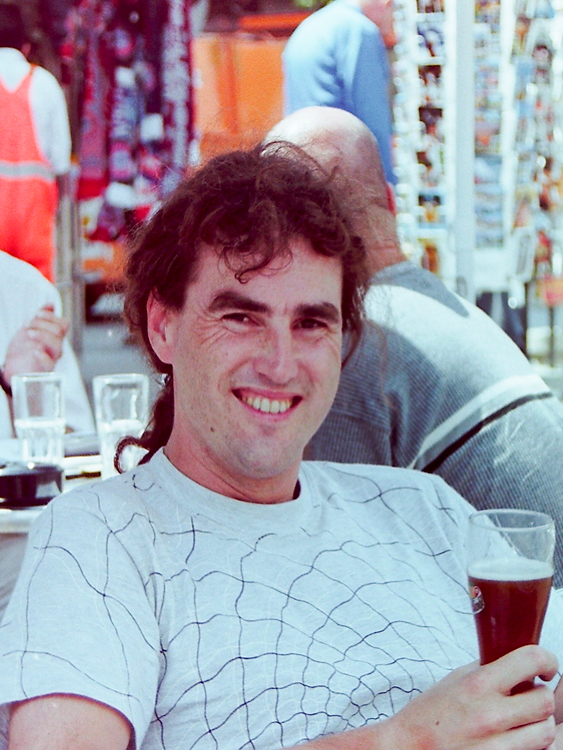
Prost!
I had no real plans for my next destination, and sitting there under the stars in the middle of the night, chatting over yet another bottle of the bars best wine, I thought to myself, why move on? I could cheerfully come back to this bar every night.
So I stayed.
